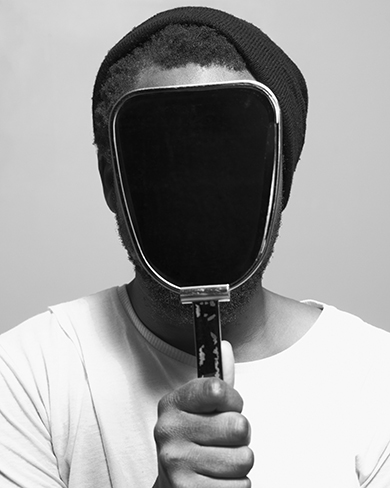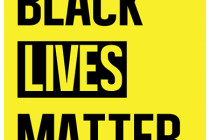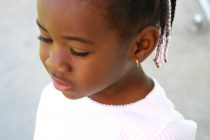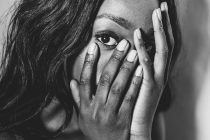”I don’t like black people”
The first time I saw that message…it was as if someone had delivered a sucker punch. Growing up as a black man in Sweden, I learned how to survive in white rooms. Usually, I was the only black person, so I’d been discriminated against before. It wasn’t anything new. But I was still surprised when it happened in what I believed to be a safe space.
We’d been talking for almost two days straight on one of those lovely apps that you could use to hook up with other men. I say lovely with a very sarcastic tone, because let’s face it; Grindr, Growlr, Happn, Tinder, all of them, are not places for the faint-hearted. We talked about the music we listen to (90’s RnB for the both of us), about the books we read. We talked about our respective jobs…it all felt really good. So good that I got the courage to send him my picture. I figured, since we’d talked so much for the last 48 hours, surely, we could meet? Maybe fall in love? What if we got together? What if…no. Stop. There came the message.
”I don’t like black people”
Goddamn. Ok. Wow. Uhh…what can I do to…no. I cannot change the color of my skin. How would I do that? Maybe I can convince him to give me a chance. I mean, we had the loveliest of conversations just a minute before, maybe we could…
”But you are cute for being a black guy”
The second message really confused me. Wait…I was cute? For a black guy? That’s good! Yay! I win! But, wait…he still doesn’t want to see me. But, I was cute for being a black guy and that meant that I was better than everyone else…or I was just still caught up in a racist viewpoint and honestly believed that this was a compliment.
When you are a part of the LGBTQI-community, the first thing you are told is that they welcome everyone! This is a safe space, where you are loved for who you are, no matter what. So, my expectations of this world were a bit of a romanticized fairytale. I believed that there was a guy out there who would magically save me from my closet and that I could meet him and also, this part I used to be ashamed of most, was that he would be white.
You see, after I got the message that I was cute for a black guy, I sort of went on a mission. My job was to convince guys that I was worthy of their attention, that I was the one black guy that was different from the others on the app. I mean, I am a black man which should mean that I was a sexual beast and that I was driven primarily by my genitals, but I wasn’t like one of “those” black men. I was better. I speak Swedish fluently, at the time I had two to three part-time jobs and I was studying. I was an expert in handling myself in white spaces but I could just as easily go back to my roots and ”black it up” as they used to say when I was younger. So I saw myself as better. It should come to no-one’s surprise that I was not, but that’s a part of how afrophobia works. It gives you a really messed up worldview.
I thought I understood that I’d been welcomed into a community of acceptance and love. In reality, I had once again entered a space that was plagued by white privilege and I was enslaving my mind to the notion that I was less than. I started buying into the myths about blackness that I had rejected many years ago, essentially to once again survive in the world, only this time I was being told that this was where I belonged. Which is why it was extra special to realize that the growing unease in my body was not because I was cuter than the other black guys, but because I was realizing, slowly, that I was still not in a safe space.
I was facing two separate, but distinct types of oppression. First, the ones stemming from the obvious. The color of my skin. The second, though less visible yet very vital, my sexuality. Being told that I was less than desirable, not because of my personality or the way that I look, but for the color of my skin? Damn, that hurt. Those words, I don’t like black people, are hurtful. And they tend to stick, whether you like it or not. For years, I did my best to avoid other black guys, because black guys were not the ones you should want. They were not the ones that would bring me out of the closet or solve anything. I should know, I was better than them. Which is why, it became absurd when I at one point wrote those exact same words to another black man.
”I don’t like black people”
The fact that I could write those words and mean them shows how much I had bought into the system of oppression and how lost I was. But it was also my turning point. I did a double take on that message to this black man and was disgusted. How could I say this to someone who probably was facing struggles similar to mine? That I wrote those words were hurtful, not only to him, but also to myself. While I had done a lot of work coming to terms with my sexuality, I had not done the actual work to decolonize my mind and deal with my internalized afrophobia. Yes, I can admit it today; I was ashamed of being black and gay. It was as if I’d ”failed twice” in life by being who I am. Which is why, I wholeheartedly accepted the terms of condition, when that guy told me that he didn’t like black people all those years ago. From that moment on, I started the work to rebuild my identity and sense of self.
Thank God, or whatever higher power that you choose to believe in, for that.
—Paulo Saka
photo: Andrea Davis Kronlund






1 Comments
Alex
You’re smart not to look to white people for approval.
I believe the fact that you put “white” on a pedestal is part of your oppression. Because even if there were no systemic racism at all — people, regardless of race, seek familiarity in a mate. More often than not, that means same cultural background, same ethnicity, etc.
That guy could have been a lot nicer about it though.